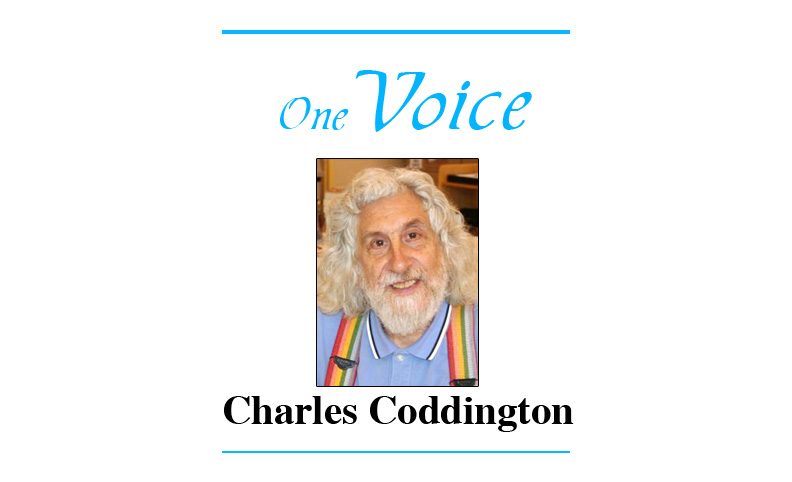
When last we read about PFC Chas, he was just settling in at his new post, the Third Armored Medical Company, a.k.a. the “Third Herd,” in Nuremberg, Germany. And, by “settling in,” I mean making sense of it all. What does a MASH (mobile army surgical hospital) do in peace time, any way? Stay with me, dear reader, and you’ll soon find out.
First, a word about the living quarters. Our barracks were called “Merrill Barracks,” and they were not your standardized military architectural design. Rather, they were three stories of brick and concrete, and a cast-iron fence surrounded the front yard, the only yard in the entire post! In a previous incarnation, the building was the barracks for the SS during the Nazi regime. The chapel was formerly the German general staff members conference room, and it still has a swastika inlaid in marble in the center of the room.
The name of the barracks derived from one Private Merrill, who was the first American soldier to pass through the gates during the assault on the building. He died two seconds later, being riddled by machine-gun fire from SS troops at the windows, and so the building was re-named in his memory. You can still see the bullet holes in the façade. If you mentioned “Merrill Barracks” to the average German citizen, (s)he would have had no idea what you were talking about; but, if you said “SS caserne on Wilhelmstrasse,” ah, instant understanding.
Now, a word about the Herd’s “foreman,” a.k.a its commanding officer. He was a captain in the Medical Service Corps; as such, he was not a doctor but an administrator, and he had a unique style of administrating. He insisted upon being addressed as “General,” because he suffered from delusions of grandeur. And so we grunts called him “General”, “General Brown Nose,” that is. When the regimental commander needed bodies to perform a variety of dirty and/or menial tasks, why, who stood up and “volunteered” us? Right.
That’s how the unit earned its nickname. It was the laughing stock in all of Nuremberg.
The opposite of our strait-laced, humorless, and no-nonsense CO was the executive officer, a second lieutenant. He would have been more at home on a college campus, smoking pot and shouting anti-war slogans. He and I got along famously.
Twice a week, the Herd policed the aforementioned yard and picked up trash thrown out of the windows by troops whose notions of proper sanitation left a bit to be desired. On those days when there wasn’t any trash, we just walked around in circles looking busy. The sergeant in charge of the detail did his imitation of George C. Scott in “Patton,” even though he was short and dumpy (the sergeant, not George C. Scott). Once a week, we were trucked over to Soldiers’ Field (where Adolf Hitler delivered his most memorable speeches) for more policing. There was a lot of trash to pick up there, but we had only an hour to pick it up, requiring running around in circles, because we had to attend numerous refresher courses in emergency first-aid techniques in a combat situation.
The refresher courses were absolutely necessary. This was 1963, the height of the Cold War, and Nuremberg was just 60 miles from the border with Czechoslovakia. That meant being on our guard, watching out for hordes of commie soldiers pouring across the border without warning, slaughtering, raping, and pillaging, not necessarily in that order. We American soldiers were doing quite well in those activities, and we did not need any competition. The Third Herd had to be ready to apply band aids, aspirin, anal thermometers, and stuff like that.
One task I had to question was guard duty. My view was that the guards should have been combat troops, not support personnel. But, since no one paid any attention to anyone below the rank of sergeant, and then only occasionally, at least four Herders per night were recruited. I walked my post to and fro in a military manner on average of twice a month. It required carrying a weapon for the first time since basic training, and we were admonished to have clean weapons. Whoever had a dirty weapon was sent back to his barracks to clean it and to report back to guard duty in 15 minutes or less.
I had a most memorable experience on guard duty one night when I was assigned to patrol the motor pool. One never knew when the commies would infiltrate the area and steal a few Jeeps. While I patrolled, the officer of the guard (OG) approached me. I didn’t recognize him as such because the motor pool was drenched in shadow. So, I challenged him in the recommended manner, i.e. “Halt! Who goes there?” He kept on coming without identifying himself, and I was forced to follow military protocol.
I arrested him on the spot and marched him off to the stockade. He was less than praiseworthy for my having followed military protocol; what he said to me can’t be printed here, because this newspaper is a family-oriented publication. When we arrived at the stockade, one of the MPs recognized him and vouched for him. As it happened, the OG had had too much to drink and did not know where he was at the time of our encounter. He and I became deadly enemies thereafter.
To be continued.

